Note (April 22, 2011): I rarely second-guess myself after posting a blog entry, but this was one of those rare cases. I reconsidered the post due to the fact that shortly after writing it, I observed a case with a client where SEO did matter. But upon further, um, reconsideration, I decided the post did still have merit, because the type of SEO we were dealing with was not the type of SEO I’m talking about here. In fact, “the type of SEO we were dealing with” is something I’m reluctant to call SEO at all, even though that’s denotatively what it is: search engine optimization. But there’s a huge difference between semantic HTML, well formed title and meta tags, and carefully constructed sitemap.xml and robots.txt files, versus “gaming the system,” which is the negative connotation SEO typically carries, and what I’m focusing on in my criticism here. So… on we go. With a few edits for clarification.
There, I said it. Well, actually I’ve been saying it in various ways for years, so what I actually mean is: there, I made it the title of a blog post. And if SEO does matter at all, then people who don’t think SEO matters (and somehow feel inclined to express that sentiment in Google’s search box) will soon be viewing this post. (Huh?)
Today I was perusing my RSS feeds (a good way to find information that is relevant to your interests, often much more effective than just searching for random terms on Google), and I came across a blog post entitled Whitehat SEO Is a Joke. Intrigued, I read it, and it made some sense. The argument in a nutshell is that whitehat SEO is, really, just ineffective SEO. This spawned a satirical response, Blackhat SEO Is a Joke. It made some sense too. And that’s when the thought really coalesced in my mind: all SEO is a joke. Not because on one end of the spectrum it’s ineffectual and on the other it’s unethical. Because manipulating search engine rankings shouldn’t really matter to a sustainable business model.
To the Twittermobile!

After some thought (and a few minutes of research), I followed up with this:

So, what do I really mean here? In this specific example of my own work, what I mean is I don’t depend on random people googling “Minneapolis web development” to get work. I get most of my work through the network of contacts I’ve developed over a decade and a half of professional experience, and through referrals from past clients. And even if I do want people to be able to find me on Google, which of course I do, I expect they would type Room 34, not Minneapolis web development. Go ahead and google “Room 34.” I’ll wait.
Welcome back. And guess what? I didn’t spend a cent on SEO consulting, and I didn’t spend much time of my own thinking about SEO either. I thought about well-formed semantic HTML and relevant content and that just happened. But it still doesn’t matter because I don’t depend on search engine rankings for business.
If you’re building a website as a means to promote your business, or if the website is your business, you’ll certainly want to appear in relevant search results, but ultimately your goal is quite simply to get people to your website, regardless of how they got there. Search engines are therefore a marketing tool — hopefully only one of many you’ll be employing — and if search engines don’t lead visitors to your site based on its own merits, then the problem is not the search engines and their confounded algorithms, it’s your site.
Don’t ask me what the other marketing tools are or should be. I’m a web developer, not a marketer. For myself, word-of-mouth and business cards have been the only marketing tools I’ve needed. Other businesses need other strategies, and the first thing any business needs to do when developing a marketing strategy is to figure out where its business is likely to come from and how best to reach that audience.
Regardless of whether you’re deeply immersed in the world of SEO or you hold it at arm’s length like I do, there are some interesting and relevant points in the two blog posts I linked to above, but I think the most salient is this, from the blackhat post:
If however you have a web property that has some value to it, then true blackhat strategies are not the way forward.
Black, white or gray, all SEO (apart from basic web design best practices, careful [and responsible] use of legitimate tools like sitemap.xml and robots.txt files, Google Webmaster Tools, and meaningful, relevant content) is essentially about gaming the system. Some techniques may achieve more immediate impact, and others may have more lasting value, but ultimately I see only two reasons to engage in any of them:
- Your content and/or its presentation doesn’t have enough value on its own.
- Your business model itself is based on gaming the system.
If the latter is true, there’s nothing I can say or do to help you or to persuade you to act otherwise. We’re simply in this world for different reasons and will never see eye to eye. If the former is true, however, there’s an alternative. It’s a lot more work, but in some ways that’s the point: make your content better. And that will often lead to an even broader, harder, and more important task: figure out what you’re really trying to do in the first place. Because if you need to be on the first page of a generic Google results page to stay in business, maybe you don’t really have much of a business at all.
Addendum, a few hours later: Like I said…



